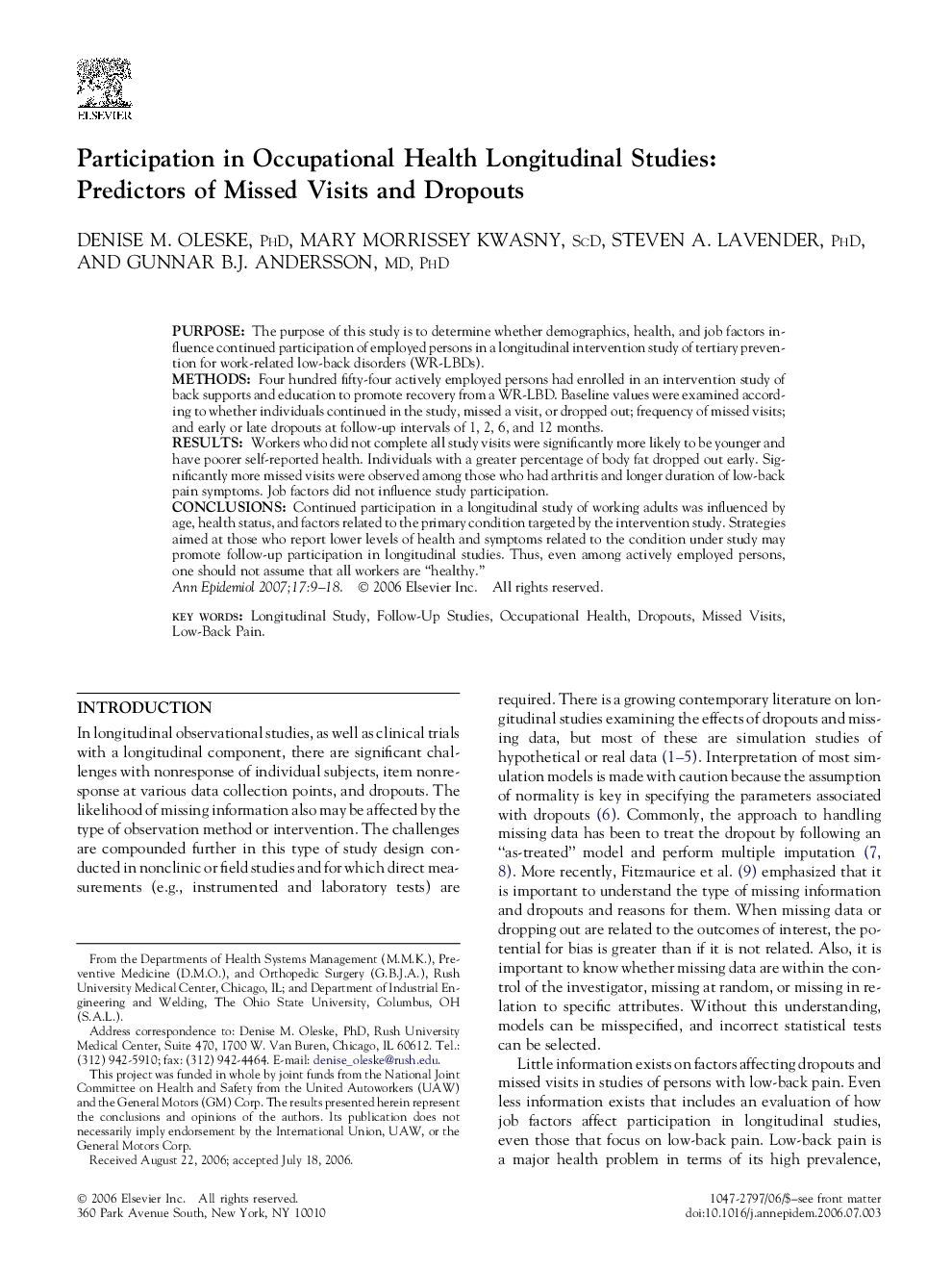| Article ID | Journal | Published Year | Pages | File Type |
|---|---|---|---|---|
| 3445474 | Annals of Epidemiology | 2007 | 10 Pages |
PurposeThe purpose of this study is to determine whether demographics, health, and job factors influence continued participation of employed persons in a longitudinal intervention study of tertiary prevention for work-related low-back disorders (WR-LBDs).MethodsFour hundred fifty-four actively employed persons had enrolled in an intervention study of back supports and education to promote recovery from a WR-LBD. Baseline values were examined according to whether individuals continued in the study, missed a visit, or dropped out; frequency of missed visits; and early or late dropouts at follow-up intervals of 1, 2, 6, and 12 months.ResultsWorkers who did not complete all study visits were significantly more likely to be younger and have poorer self-reported health. Individuals with a greater percentage of body fat dropped out early. Significantly more missed visits were observed among those who had arthritis and longer duration of low-back pain symptoms. Job factors did not influence study participation.ConclusionsContinued participation in a longitudinal study of working adults was influenced by age, health status, and factors related to the primary condition targeted by the intervention study. Strategies aimed at those who report lower levels of health and symptoms related to the condition under study may promote follow-up participation in longitudinal studies. Thus, even among actively employed persons, one should not assume that all workers are “healthy.”
